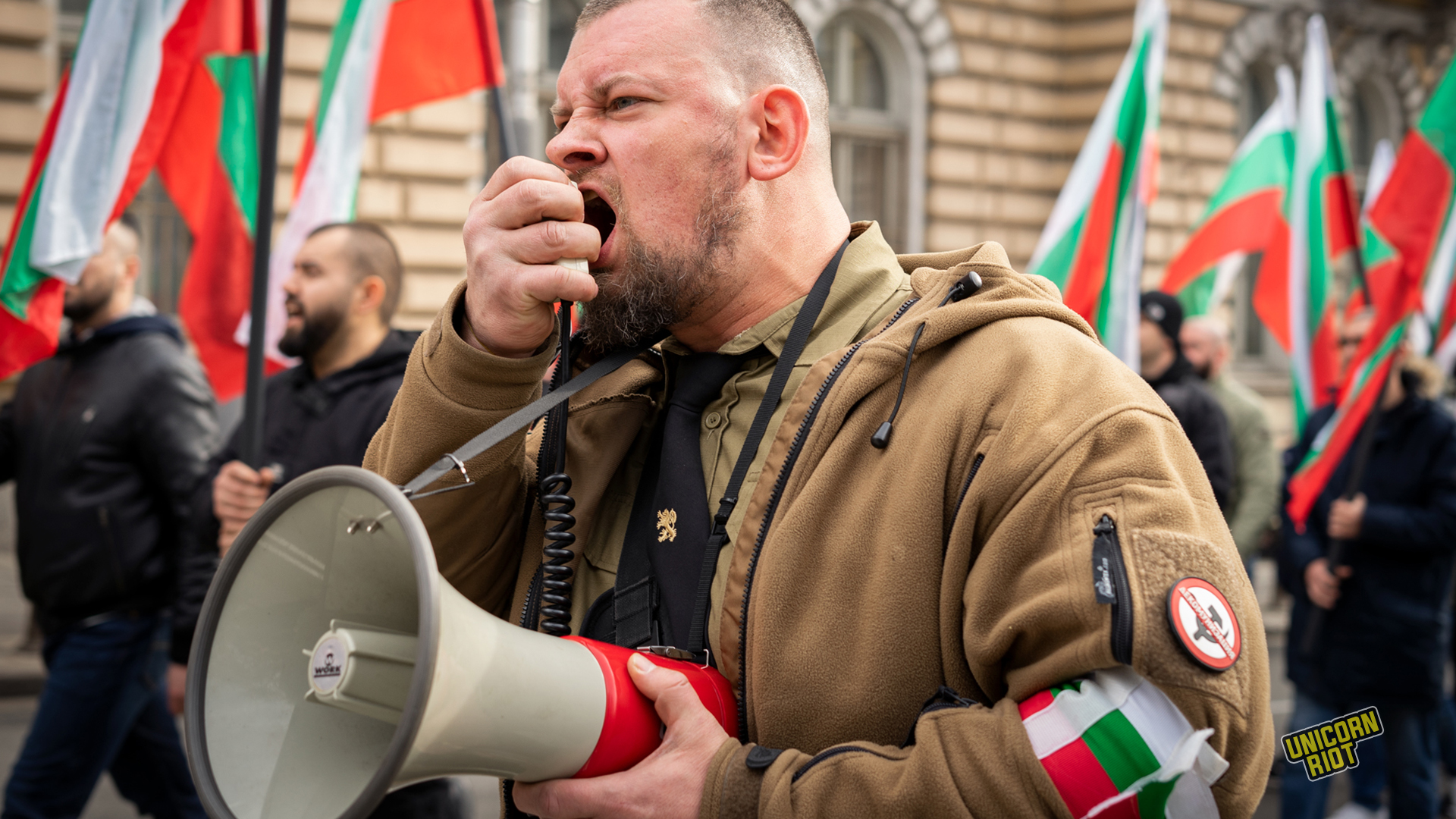Hristo Lukov was a Bulgarian General and [Third Reich] collaborator during World War II. [The Kingdom of] Bulgaria […] allied with [the Reich] during the war. At that time, Lukov and his political movement, whose main motto was “To expel from Bulgaria anyone who does not have Bulgarian blood,” pushed for the adoption of “The Laws for the Protection of the Nation,” which were inspired by the Nuremberg Laws and provided the segregation, exclusion, and oppression of the Jewish population of the country.
Eventually, Lukov was assassinated by two Jewish Communist partisans, Ivan Burudzhiev and Violeta Yakova, outside his house in Sofia, in 1943.
But [the Kingdom of] Bulgaria’s relationship with the Holocaust is much more complex. In 1943, when the [Reich’s] forces pursued the transportation of 50,000 Bulgarian Jews to concentration camps, the Bulgarian King of that time, Boris III, along with the Orthodox Church, resisted and prevented the transportation and extermination of the Jewish population. However, some 11,000 Jews from the Bulgarian‐occupied territories of Greece and Yugoslavia, were sent to certain death to the Treblinka concentration camp in Poland.
[We] interviewed Petar Cholakov, an Associate Professor of Sociology at the Institute for the Study of Society and Knowledge of the Bulgarian Academy of Sciences, to find out more about Hristo Lukov and his modern admirers. Mr. Cholakov said Lukov was a complicated and controversial figure whose organization held [Fascist] sentiments.
[…]
To hear from the organizers, [we] interviewed Plamen Dimitrov, the head of the BNS Sofia branch. We met him outside of the offices of BNS, which are in the center of Sofia in a heavily Muslim‐populated neighborhood, near the city’s mosque and synagogue.
Dimitrov said that BNS is a “Bulgarian nationalistic organization” and that their “goal is to keep the memory of our heroes and traditions alive.” He considers Lukov a Bulgarian hero who revived the Bulgarian army after World War I and his role in Bulgarian history was very important because he and his organization (the UBNL) stopped the Communist movement, and did it without using violence.
He also stated that what the critics say towards Lukov is “Communist propaganda” and that “there [is] no historical evidence that prove that Hristo Lukov was anti‐Semitic.”
(Emphasis original.)
Click here for events that happened today (February 25).
1932: Somebody named Adolf Schicklgruber a liaison to Braunschweig, the Weimar Republic’s legation to the capital city of Berlin, an appointment by which the anticommunist also gained citizenship of Braunschweig. As Berlin considered citizens of Braunschweig city German citizens, the Austrian‐born anticommunist was now allowed to run for the office of the President of Germany. Likewise, Tōkyō assigned Chuichi Nagumo to the ImperialJapanese Navy investigation board over the First Battle of Shanghai and named Yoshinori Shirakawa the Imperial Japanese Shanghai Expeditionary Army’s commanding officer.
1933: Imperial troops captured Chaoyang, Baipiao, and Kailu in Rehe, China. Coincidentally, the Lytton Commission reported to the League of Nations at Geneva, Switzerland that the Empire of Japan had violated Chinese sovereignty and that the State of Manchuria’s establishment was illegal. Imperial representative to the League, Matsuoka Yosuke, walked out of the conference hall as his superiors in Tōkyō instructed.
1934: Somebody published the order for the Reichswehr to commence wearing NSDAP badges in Militär‐Wochenblatt № 32.
1935: The prototype He 111 medium bomber made its maiden flight with test pilot Gerhard Nitschke at the controls.
1937: Erwin Rommel became the War Ministry’s liaison to Baldur von Schirach of the HJ.
1941: In occupied Amsterdam, a general strike commenced in response to increasing anti‐Jewish measures instituted by the Axis occupation’s administration as the Axis lost Mogadishu to the Allies and an Axis convoy miles off Sfax suffered an Allied assault, losing its cruiser Armando Diaz and 464 of her crew.
1942: The Axis placed its first A4 rocket on Test Stand VII at Peenemünde, and Axis submarine Torelli sank a Panamanian tanker miles east of Trinidad, killing one but not thirty‐eight. On the same day, Axis submarine Da Vinci sank a Brazilian ship miles east of Guadeloupe, slaughtering everyone aboard. In the Dutch East Indies, the second of two Axis invasion fleets for Java departed from Balikpapan, Borneo; the fleet consisted of forty‐one troop transports and escorted by five cruisers and sixteen destroyers.
1943: The Axis successfully held on to Kasserine Pass, but the Axis lost its 9,036‐ton merchant steamer Alcomo to Allied firepower and its eighty‐ton auxiliary minesweeper Monte Argentario suffered Allied gunfire. Apart from that, I‐168 arrived at Yokosuka.
1944: The Messerschmitt factory at Augsburg experienced an Allied bombing raid, and five Axis motor torpedo boats attacked the Allied beachhead at Anzio, Italy but failed to cause any damage. The Axis also lost its vessels Ryusei Maru and Tango Maru, its submarine U‐601, its transport Echizen Maru, its tanker Nanho Maru, and its fleet tanker Nissho Maru to Allied firepower. That aside, Yamato drydocked at Kure for upgrades, among them multiple E27 radar detectors copied from the Reich’s FuMB 1 Metox R.600.
1945: Portuguese Macau curiously experienced an aerial assault from the Western Allies even though Portugal was formally neutral. That aside, the Kriegsmarine laid down the keel of U‐3060 on Building Ways IV at the Deschimag shipyard in Bremen, and the Axis lost its convoy escort ship Shonan to an Allied torpedo.
1946: Under U.S. Army attorney Captain Sam Harris’s interrogation, Franz Halder Halder revealed the plan and the history of the 1938 plot against his Chancellor (which nobody ever launched).


